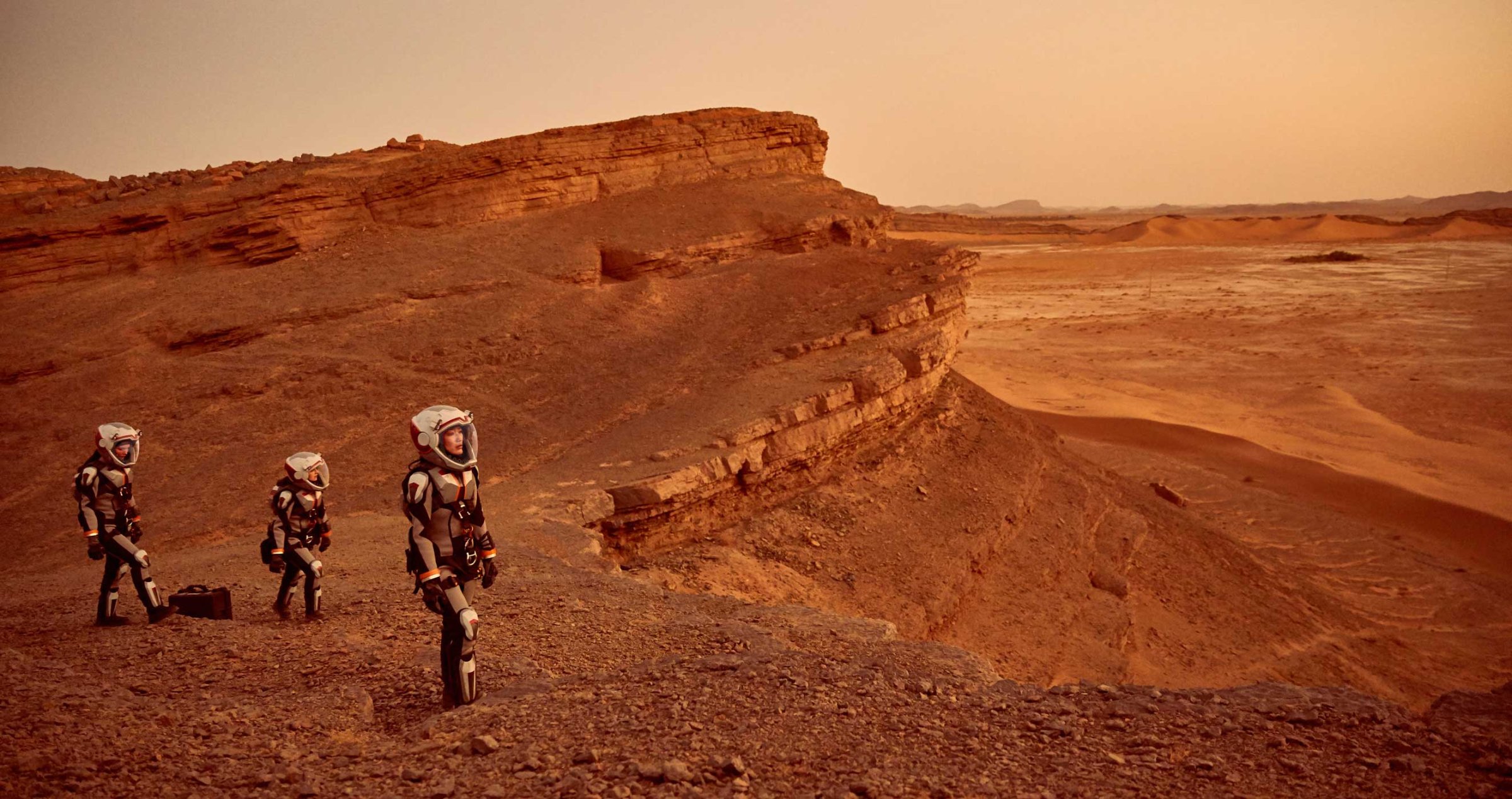
It’s a First-World luxury to live in a country in which we can gripe about not having gotten to Mars yet. If we could land on the moon 47 years ago, why is Mars taking so long? The question is being asked more often lately, which makes it a good time for the National Geographic Channel’s new six-episode series, straightforwardly titled Mars, produced by Imagine Entertainment’s creative duo Ron Howard and Brian Grazer.
Howard and Grazer made their space bones with 1995’s Apollo 13, a movie that–full disclosure–was based on the book I co-authored with astronaut Jim Lovell. That might make me a soft touch for any space product that comes from the Imagine shop, but it also gave me a close look at the take-no-prisoners way Howard and Grazer keep their material scientifically honest.
That’s true of Mars too, but it’s a bigger challenge in this case, since the series is in some ways a straight-up sci-fi tale about the crew of the spaceship Daedalus, sometime in 2033, trying to make the first human landing on the Red Planet. So Howard and Grazer mix the future-tense fiction with present-day preparation, intercutting the action with scenes of the work being done today to make a Mars trip a reality. Prominent voices in the field–SpaceX CEO Elon Musk, NASA administrator Charles Bolden and others–are on hand to explain the extreme challenges of interplanetary flight. You may not understand how hard it is to land a spacecraft upright on another planet now, but you will when you see the footage of SpaceX’s first, explosively failed attempts to land one of its rockets that way on Earth.
“The documentary footage keeps informing the drama,” Howard says. “And the drama keeps reflecting the science and what the experts are telling us.”
One of the things they tell us is why we’d bother with Mars in the first place. The series is based on the book How We’ll Live on Mars, by Stephen Petranek, and the first episode makes clear that the 2033 crew is traveling to Mars not just to visit, but to settle. We are no more immune to an extinction event than the dinosaurs were, so why not hedge our bets with another whole planet? “Wouldn’t we feel stupid if we could have gone before the meteor was headed our way, but now we’re out of time?” Howard says jokingly–mostly.
As with all exploration, there is another, less practical reason to go to Mars: it’s simply in our nature. “Going to Mars is such a grand leap,” says Grazer. “There’s so much nobility that lives inside of it.” It’s that part of Mars–both the planet and the series–that will stay with you most.
More Must-Reads from TIME
- Why Trump’s Message Worked on Latino Men
- What Trump’s Win Could Mean for Housing
- The 100 Must-Read Books of 2024
- Sleep Doctors Share the 1 Tip That’s Changed Their Lives
- Column: Let’s Bring Back Romance
- What It’s Like to Have Long COVID As a Kid
- FX’s Say Nothing Is the Must-Watch Political Thriller of 2024
- Merle Bombardieri Is Helping People Make the Baby Decision
Write to Jeffrey Kluger at jeffrey.kluger@time.com